Introduction, Interview & Photography by Aidan Frere-Smith
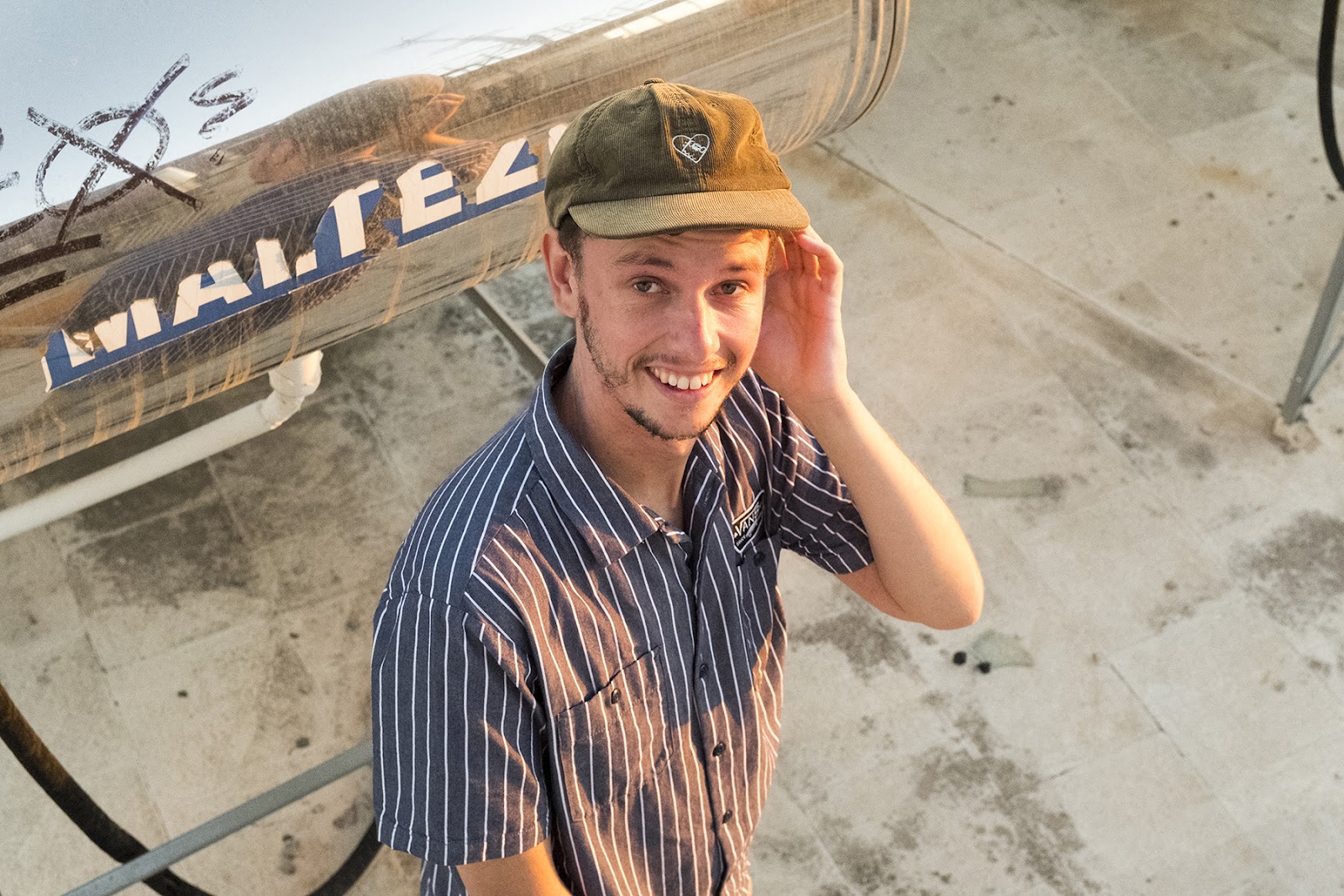
It’s early spring and I’m standing in an outdoor basketball court in the Patisia neighbourhood of Athens. The basketball posts had been removed during the first lockdown but two years later, even though they were never replaced, the court is in use once again. Skateboards, safety pads, helmets and ramps are being unloaded from a van and passed through a broken fence as kids of various ages eagerly wait. Others are arriving with banners, balloons, paints, doughnuts and soft drinks. Free Movement Skateboarding (FMS) are preparing to celebrate their 5th birthday skate session.
I first met Will Ascott, co-founder of FMS, a decade ago in Norwich in the UK. We were both studying at different universities in the city but crossed paths initially through the punk scene. I was putting shows on at the time and evidently had his band play a benefit show I had organised. Looking back, he recalls;
“I wanted to listen to music that was more politicised and expressing what I was learning about what was going on in the world at the time. Punk helped me understand some of those things.”
He had already been playing live shows. One specific show in a university classroom reflects the do-it-yourself ethos that is often seen as synonymous with punk. This approach, however, wasn’t only confined to music. Though “punk has done some amazing stuff for people”, he knew the broader importance of the DIY ethic;
“[It’s about] getting the work done that you want in your community. It is the community itself that knows what it wants and knows how to go about it.”
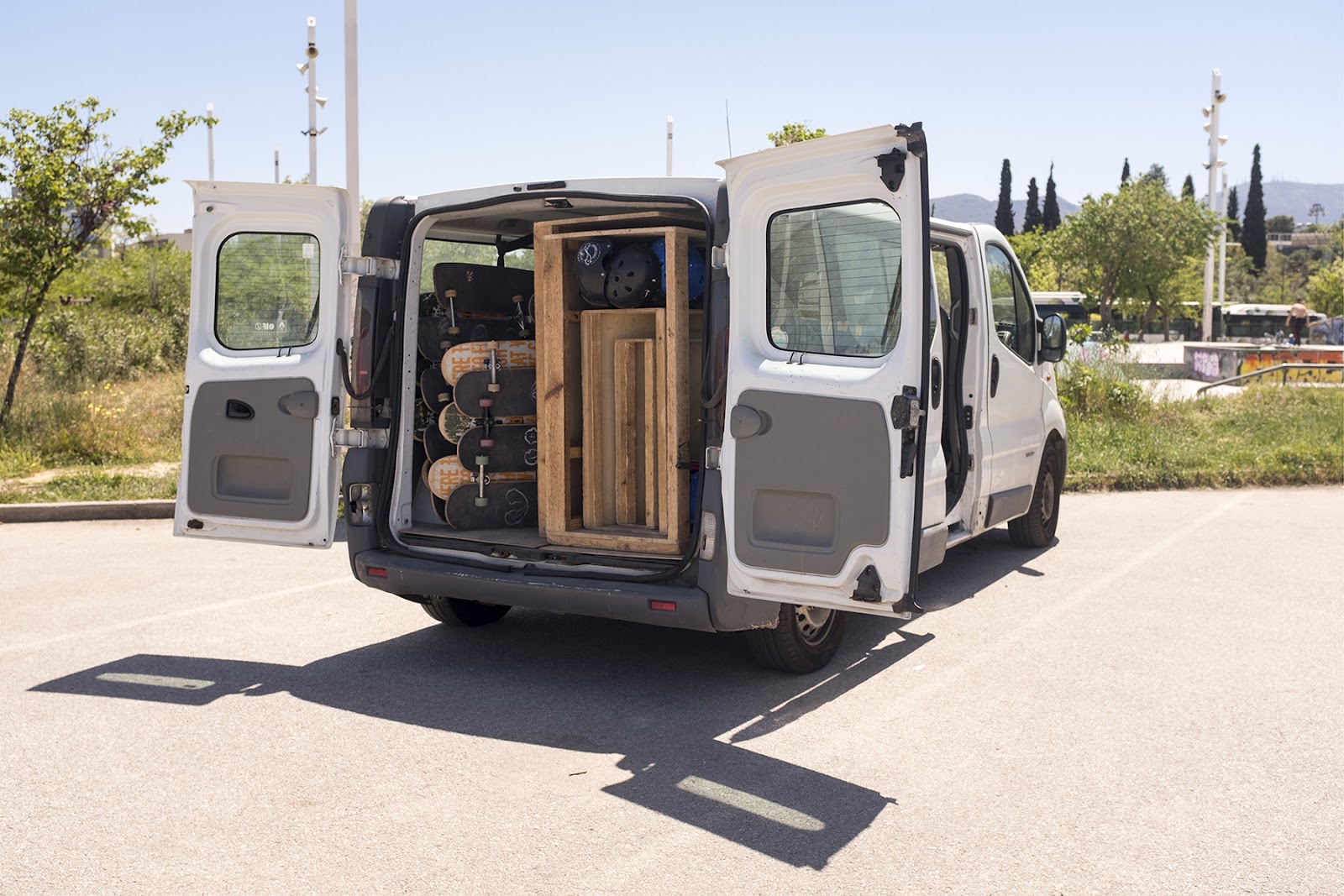
It was evident that Will wanted to help the community. He worked for a youth centre and in disability support for a school but felt that “life was generally trying to push [him] towards some kind of social skateboarding project.” Will proceeded to set up an after-school club teaching skateboarding. It didn’t work out but he remained positive and saw it as a positive learning experience.
He then met Harriet Alanna who ran Brash Skate and Create; a community skateboarding project for female and queer skaters. She introduced him to SkatePal and, together, they organised a benefit skate jam event for them at the local skatepark. His passion led him to volunteering in Palestine in the autumn of 2016 and although he was exposed to the realities of the occupation, he saw how beneficial skateboarding was for the community;
“It was a very comfortable mix of different people and was a community hub not just for kids, but also for families as well. Skating also wasn’t a male dominated activity, it was inclusive.”
Whilst volunteering, Will befriended Ruby Mateja who was also from the UK; “We got along well and had a shared belief in a lot of stuff.” Conversations naturally gravitated toward the do-it-yourself ethos and how they could replicate some of the positive work they were experiencing. Unbeknown to them at the time, these early conversations were to evolve into the formation of FMS.
From there, Will travelled to Greece to volunteer at Khora Community Kitchen in Athens. Here he continued to consider ideas of setting up a community skateboarding project and after learning of the refugee camps outside of the city and how isolated they were, he formulated the idea of bringing skateboarding to them with a mobile skatepark;
“I was lucky enough to meet Josie Naughton, CEO of Choose Love, then called Help Refugees, and pitched the idea to her whilst I was chopping onions in the kitchen at Khora. She was very supportive so I filled out a funding application.”
The application was a success and he returned to the UK to finalise the formation of FMS. Together with Ruby and Benji Sowter, they bought a van and, in spring 2017, made their way to Athens. They got to work soon after their arrival; building skate ramps, getting equipment together, starting their own skate sessions and creating a network. He remembers;
“It was an incredible time in my life. Everything I had pushed for in the past, built on this DIY ethos, suddenly came together.”
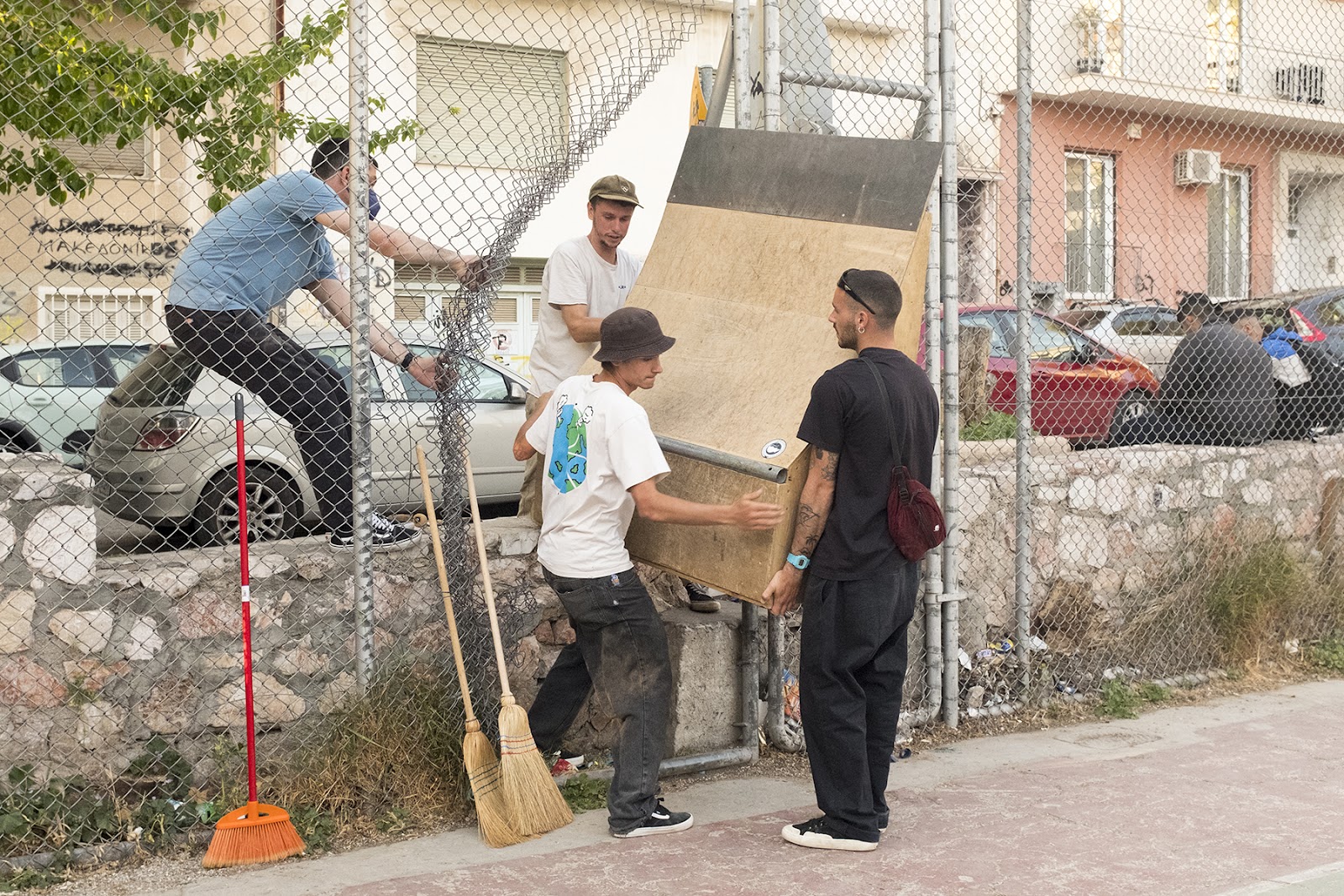
At the time a large proportion of sessions took place in refugee camps, but as the numbers of people residing in them continued to rise space became limited. Meanwhile, FMS initiated sessions in other parts of the city including youth centres, squats and public spaces, up to 11 times a week.
Athens, like many large and densely populated cities, is ever-changing and has a political climate that is challenging for those who need support, especially those seeking refuge;
“I’ve seen gentrification effect where our work is most effective and which neighbourhoods are worth spending time in. We used to work a lot with squats [in Exarchia] that housed refugees but they no longer live there anymore because they were all getting evicted. It was really aggressive and a lot of people lost their homes.”
FMS persevered and in 2019 taught over three hundred sessions to nearly a thousand participants from twenty-three nationalities. The following year, the unexpected challenge of the COVID-19 pandemic emerged and forced FMS to become inactive for the initial lockdown. After five months, limited sessions were able to continue at orphanages with Mum Institute by implementing additional health and safety measures but were no longer able to continue at refugee camps. Will explains;
“The most evident and brutal change was that the government used the COVID-19 pandemic as an opportunity to push a new policy which limited small NGO’s access to refugee camps. The bureaucracy and financial requirements make it unfeasible. Libraries, healthcare, food projects and others are no longer able to access these people.”
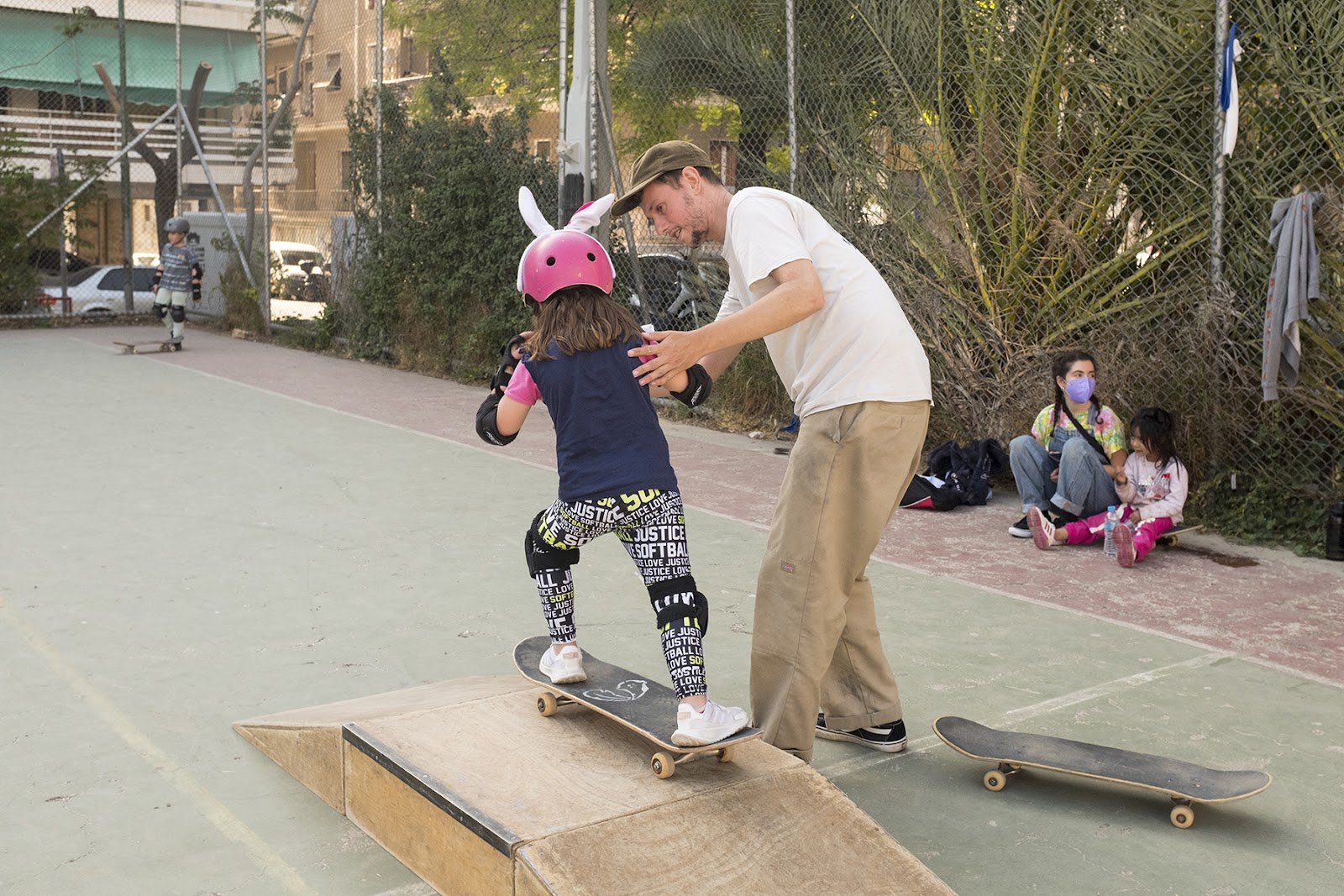
Though this was a major blow to them, they pushed forward and expanded. FMS initially formed as a refugee focused project and, though they have always been inclusive, now see themselves as a youth project due to the growing diversity of participants. Will recognises that as well as refugees, many young people in Athens experience discrimination and face difficult lives for a multitude of reasons;
“The demographic has changed quite considerably. For example, we currently operate two sessions a week with people from the Roma and travelling communities, who unfortunately face an extreme level of discrimination here. I am proud to say that I am part of an organisation that works with Roma kids because there aren’t many that do.”
FMS’s sessions create spaces where people with different backgrounds can come together. Will firmly believes that, over time, these spaces can form the foundation for an inclusive future;
“I really believe there is something really inherent in skateboarding that builds community. If you’re able to create a supportive atmosphere then you can create something special. That is what our sessions are about.”
Some participants are initially shy and reserved, however, Will is positive about the progress of their involvement;
“They really push themselves and learn something that is mentally and physically good for them. That experience and excitement is shared, sometimes without the need for verbal communication. It’s a very special thing being able to facilitate it and I feel lucky to have been involved in that.”
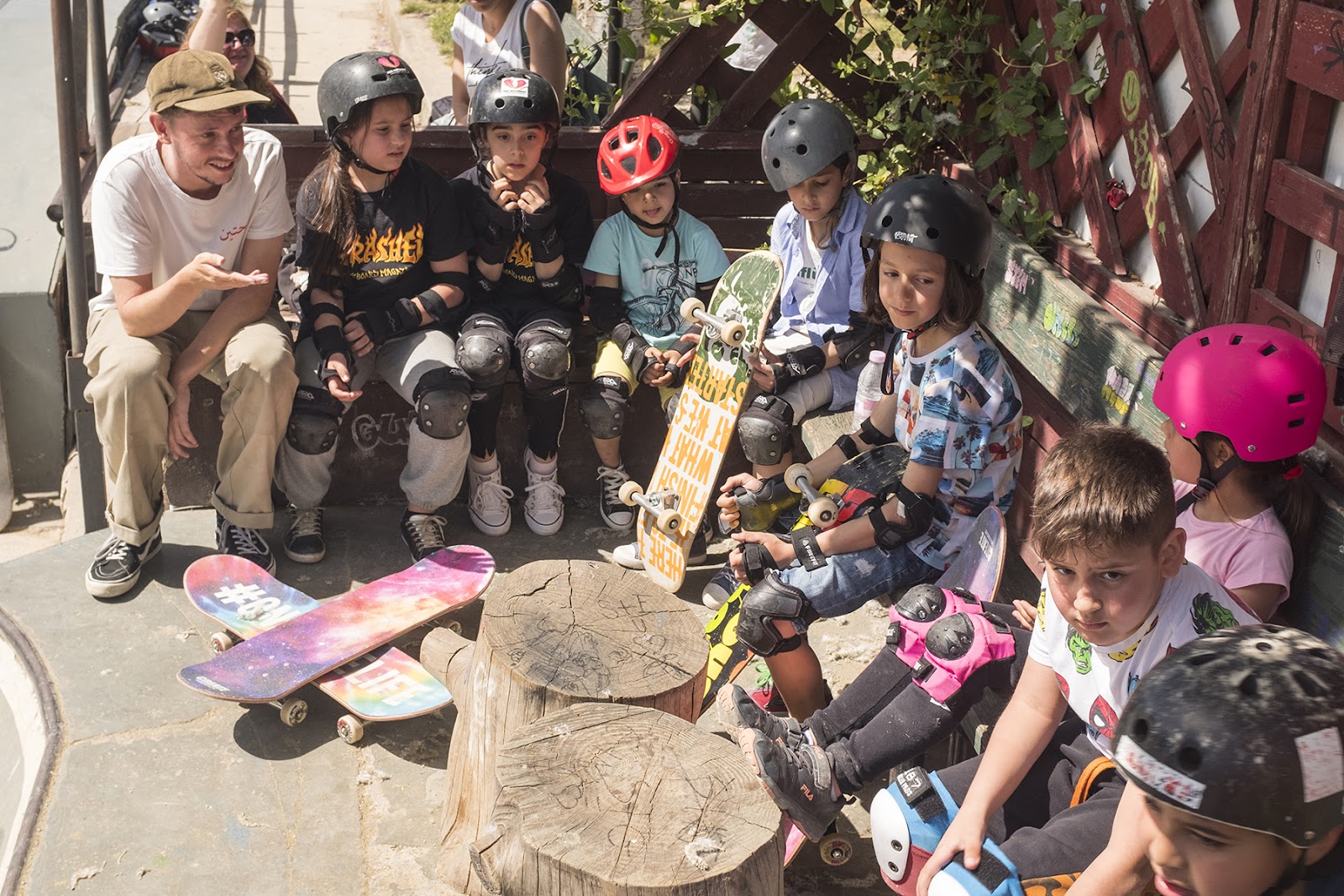
FMS provide support and promote mental wellbeing, not just through the process of skateboarding but also through discussions that are had at the beginning of each session, which range from creativity to identity. Will explains that wellbeing, along with empowerment and social cohesion, are areas that they aim to expand in the future by securing a permanent space;
“We are pushing to build a skatepark. A youth centre would also be something to work towards. There’s a real lack of provision for the youth of Greece of all backgrounds and we would be really happy to be part of improving that.”
FMS has come a long way in their journey. They have overcome a myriad of challenges but have expanded their efforts and continue to provide something incredibly important for the community. Will recalls the significance of the do-it-yourself ethos;
“I think it played a really important role. It introduced me to people who believe in really pushing for something they believed in and made me want to do the same.”
Perhaps their achievements will also inspire others to push for what they believe in. It has certainly inspired me. In 2018 I saw the early stages of FMS and had the privilege of assisting in some of their sessions. Returning for their 5th birthday skate session, I found a community project more diverse, inclusive, empowering and fun than ever before. Doing-it-yourself really can achieve something special.


